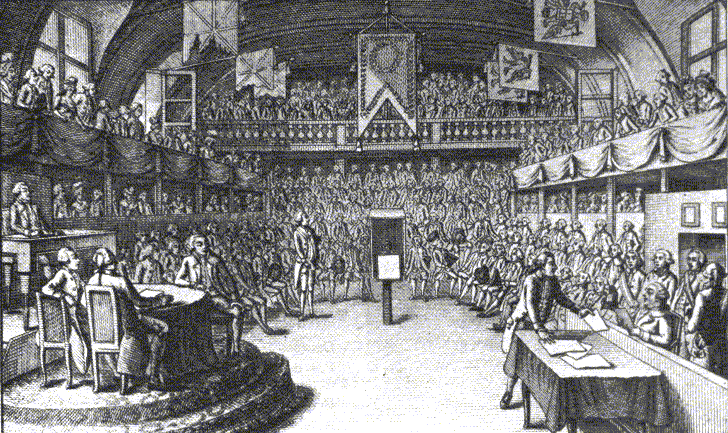About
Kant has often been called a “moderate” political thinker. On the one hand, he builds his political philosophy on the innate right of humanity that pertains to all human beings. This provides an egalitarian foundation on which he condemns the permissibility of slavery, colonialism, and hereditary privileges. On the other hand, Kant seems to envision a patriarchal, classist society in which women and laborers are not considered full citizens and therefore have no say in legislation. These two aspects of Kant’s political thought are also reflected in his immediate followers, who were both progressives and conservatives. While some used the Kantian framework for reactionary theories (see, e. g., August Wilhelm Rehberg, Freidrich von Gentz..), others thought that Kant’s views were not egalitarian enough, thereby aiming to correct his political theory by placing it on more egalitarian Kantian grounds (e. g., Johann, Adam Bergk, Johann Benjamin Erhard,…).
Program
Thursday, August 31
9.00-9.15: Registration and Welcome: Michael Kryluk & Elisabeth Widmer
Morning Session Chair: Michael Kryluk
9.15-10.30: Keynote: Presentation 1: Howard Williams (Cardiff University): Questioning Hegel’s Farewell to Kant in the Philosophy of Right
10.30-10.45: 15-minute break
10.45-11.30: Presentation 2: Christel Fricke (University of Oslo): Kant on Moral Agents and Citizens of a State
11.30-12.15: Presentation 3: Elisabeth Widmer (University of Oslo): Kant on Economic Dependency, Civility, and Innate Right
12.15-13.30: Lunch
Afternoon Session Chair: Reidar Maliks
13.30-14.15: Presentation 4: Michael Nance (University of Maryland, Baltimore County): Fichte and the Gendered Division of Labour (Zoom)
14.15-15.00: Presentation 5: Jason Maurice Yonover (Princeton University): Maimon on Right and Power (Zoom)
15.00-15.15: 15-minute break
15.15-16.00: Presentation 6: Andrew Beddow (University of Chicago): Honor, Marriage, and Infanticide
16.00-16.45: Presentation 7: Olga Lenczewska (University of North Carolina, Wilmington): Early Feminist Critiques of the Gendered Conception of Public Thinking (Zoom)
16.45-17.00: 15-minute break
17.00-17.45: Presentation 8: Ewa Wyrębska-Đermanović (Ruhr-University of Bochum): The Rightful Condition and the Realm of Ends: Kant For and Against Structural Injustice
18.30: Dinner
Friday, September 1
Morning Session Chair: Elisabeth Widmer
9.00-10.15: Keynote: Presentation 9: David James (University of Warwick): “Radical Evil and Kant’s Realist Theory of Political Progress”
10.15-10.30: 15-minute break
10.30-11.15: Presentation 10: Valentin Braekman (Université de Lausanne): A Kantian Herald of Universal Inclusion: Bergk on Female Suffrage
11.15-12.00: Presentation 11: Reidar Maliks (University of Oslo): Perfection through Participation: Bergk on Democracy
12.00-13.30: Lunch
Afternoon Session Chair: Toshiro Osawa (University of Oslo)
13.30-14.15: Presentation 12: Michael Gregory (University of Groningen): Conservative Epigones: Conservatism, A More Consistent Kantianism?
14.15-15.00: Presentation 13: Michael Kryluk (University of Oslo): Fichte v. Rehberg on the Origin of the Aristocracy
15.00-15.15: 15-minute break
15.15-16.00: Presentation 14: Takuya Saito (Hokkaido University): Kant and Klein
16.00-16.45: Presentation 15: Jeffrey Edwards (Stony Brook University): The French Revolution and Kant on Original Acquisition (Zoom)
16.45-17.00: Thanks and Closing Remarks
18.00: Dinner
Practical Information
If you would like to attend the conference, please contact m.c.v.kryluk@ifikk.uio.no. The conference is organized by KanDem -- The Kantian Foundations of Democracy, supported by the Research Council of Norway grant Project number: 324272. We gratefully acknowledge support from the Norwegian Kant Society.
